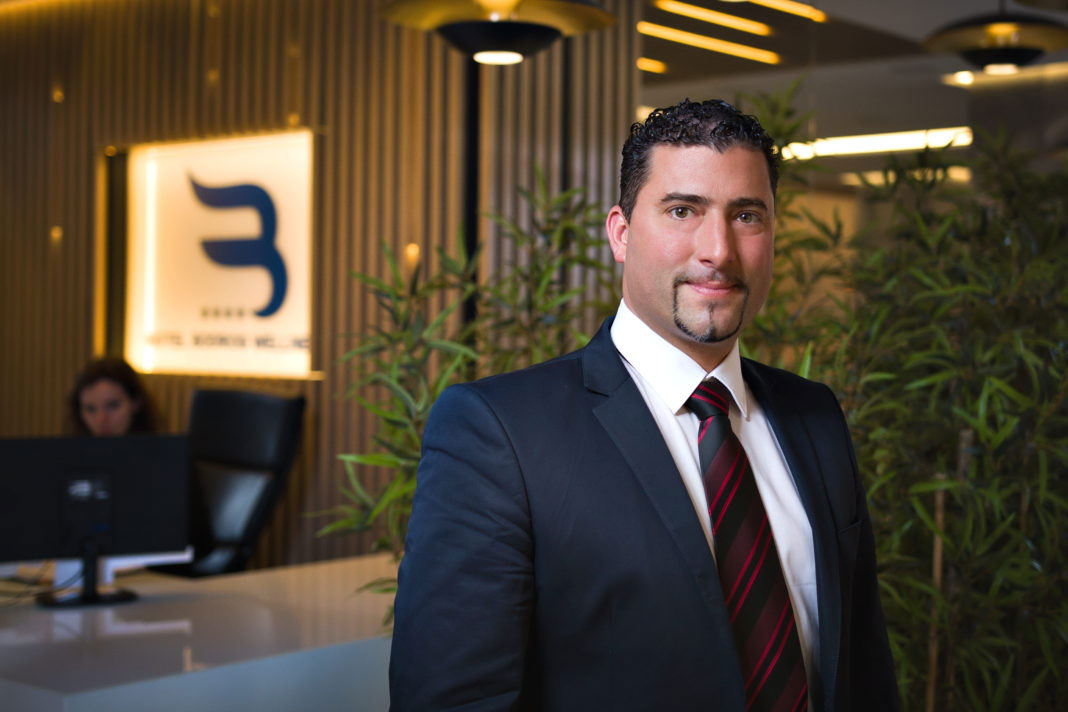Changing expectations from guests, automation of operations, a radical transformation of sales-marketing activities and regulatory compliance - four trends that require significant digital development for businesses in the tourism industry. In practice, these include hotel services that can be managed from the guest's phone, smart cookies that produce food safety reports, room rates that can be updated online minute by minute, and digital guest identification. To achieve them, serious planning, a professional partner and resources are needed.
The tourism sector has seen perhaps the biggest change in the last decade, with digitisation in almost all aspects. Online booking, self-guided tours, the rise of cheap day trips and the rise of social media as a platform for sharing experiences have all fuelled the sector. A competitive part of the business sector has used the period of the epidemic that has gripped the sector to develop, but this is a skill- and resource-intensive process. The tourism sector also accounts for a significant share of the domestic economy's output, so the importance of the Modern Enterprise Programme, which is the flagship of the digital development of Hungarian businesses, is unquestionable.
The need for development has also been confirmed by the business community.
"IT IS INCONCEIVABLE FOR A TOURISM BUSINESS THAT WANTS TO REMAIN COMPETITIVE AT HOME AND ABROAD TO OPERATE WITHOUT MODERN DIGITAL SOLUTIONS"
- shared the opinion of Péter Bágyi, director of the Hotel Bodrog wellness hotel in Sárospatak, who used the consultants of the Modern Entrepreneurship Programme as a professional partner both for mapping the development opportunities and for attracting funds.

Péter Bágyi, hotel manager (source: Hotel Bodrog, Sárospatak)
Trend 1: the importance of the guest experience
Guests' needs have grown far beyond the classic accommodation features, such as room facilities, comfort or even the quality of the food. Digitalisation has completely permeated people's lives, so that they expect much more and higher quality service, from the booking process to the quality of the stay. Competitive businesses use automated booking systems to send confirmation, programme offers and weather information to guests before they arrive. They operate a complete electronic entertainment centre and make all existing services - parking, activities and leisure programmes, meals - available online, even from mobile phones, and can be requested and booked to enhance the guest experience. Reducing the use of cash and using card-based systems is also increasingly expected of hotels.
Trend 2: digitalised operations
The larger the business, the more obvious the need for complex systems, but customer registration, booking, internet accessibility is now expected of even the smallest service provider. In the case of the hotel mentioned above, for example, this already means unified, digitised inventory management and supplier partner and invoice management, but automated processes also serve sustainability goals through paperless operation. Security camera systems or the monitoring and optimisation of renewable energy equipment are processes that are less visible to guests. Similarly, cloud-based software can perform the data analysis essential for business development, but also reduce the workload by automating it.
Trend 3: sales marketing
Tourism marketing has undergone the most significant change of all the sectors that affect marketing, in fact the proliferation of online booking has in itself repositioned the sales model of the whole sector. The new companies that have been set up to collect and compare offers have taken over from travel agencies and hotels and are adding a great deal to the volume of bookings. The automation of pricing and booking systems is therefore one of the most popular directions for the digital development of competitive tourism businesses. Software support enables minute-to-minute price adjustments, which can change the prices offered on aggregator sites depending on occupancy levels, popular time periods, or even specific events or weather conditions.
Trend 4: changes in legislation
The government has also seen the potential of digitalisation for the tourism sector. A number of regulations have been introduced in recent years to ensure transparency: the introduction of online invoicing, the launch of mandatory data provision through the development of the IT infrastructure of the National Tourism Data Centre, and the mandatory use of electronic document readers from September - all of which require significant digital development.
How much will the improvements cost?
It is a moderately time- and cost-intensive investment when we talk about tourism development. Both the hardware and the software are expensive to acquire, and, to give an illustrative example, the aircraft must be acquired mostly in flight, with very few major outages such as epidemics, when traffic does not feel the change. On the scale of the hotel in question, the cost of the upgrades could be close to ten million forints, and this is for upgrading an existing system, not for a completely new design.
The experience of the Modern Enterprise Programme's consultants, the number of projects exceeding 10,000 and the more than 3,000 IT solutions that the Programme has used to help the majority of the more than 20,000 interested parties to go digital in recent years all started with an audit. With this independent, no-obligation assessment in hand, and a free development concept in their pocket, entrepreneurs could decide which direction to take. An added bonus for MVP is that their colleagues can also help businesses to find funding. According to Péter Koleszár, the Programme's lead ICT adviser, it is no coincidence that many of their clients, including the director of the Hotel Bodrog wellness hotel, regularly consult the Programme's advisers on current trends. The owners of competitive tourism businesses are constantly monitoring development opportunities, and what can be financially integrated into their business operations, they try to find funding for with the help of the Programme, so that they can start implementation before their competitors do," summarises the experience of the Programme's lead consultant.

Péter Koleszár, Senior ICT Consultant (source: Modern Entrepreneurship Programme)

